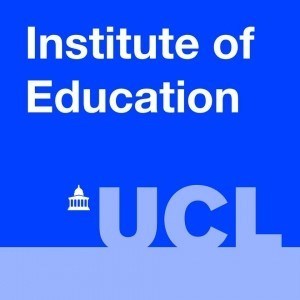Photos of university / #sussexuni
Gender Studies at the University of Sussex offers an in-depth exploration of the social, cultural, political, and economic factors that shape gender identities and experiences worldwide. This interdisciplinary programme is designed to equip students with critical analytical skills and a comprehensive understanding of issues related to gender inequalities, activism, policy, and representation. Throughout the course, students examine diverse perspectives on gender across different societies and historical periods, fostering a nuanced appreciation of how gender intersects with race, class, sexuality, and disability. The curriculum incorporates theoretical frameworks from feminism, queer theory, sociology, anthropology, and cultural studies, encouraging students to challenge normative assumptions and explore the social construction of gender. Practical components include case studies, research projects, and opportunities for engagement with community organizations, enabling students to apply their learning in real-world contexts. The programme prepares graduates for careers in academia, public policy, non-governmental organizations, media, and advocacy groups, among others. Students benefit from the university’s vibrant academic community, experienced faculty, and extensive resources, including specialized research centers focused on gender and social justice. With flexible study options, including full-time and part-time routes, the programme caters to diverse student needs. Graduates will be well-positioned to contribute to ongoing debates about gender issues and to promote equality and inclusive practices in various professional settings. By fostering critical thinking and a socially conscious outlook, the Gender Studies programme at Sussex aims to develop future leaders committed to social change and equality.
Explore our research interests and find a potential supervisor.
- GENDER ACTIVISM, GENDER POLITICS
- GENDER AND CULTURE
- GENDER, SOCIETY AND THE STATE
- INTERNATIONAL/GLOBAL FEMINISMS
- LGBT AND QUEER STUDIES
Requirements
- A Masters degree in a subject relevant to your research. Applicants should submit an outline research proposal (three to four pages) indicating their topic, a brief literature review, methodology, timeline and a short bibliography of relevant source
- IELTS 6.5, with not less than 6.0 in each section.
- Reference
- Transcript
- A personal statement
- The application fee is £13 if you’re applying to just one course
Want to improve your English level for admission?
Prepare for the program requirements with English Online by the British Council.
- ✔️ Flexible study schedule
- ✔️ Experienced teachers
- ✔️ Certificate upon completion
📘 Recommended for students with an IELTS level of 6.0 or below.
The University of Sussex offers a comprehensive range of financing options for students enrolled in the Gender Studies (Social Sciences) program. Tuition fees vary depending on the student's residency status, with domestic students paying different rates compared to international students. For the academic year 2023/2024, the tuition fee for UK students is approximately £9,250 per year, while international students are charged around £19,600 per year. The university provides detailed information about additional costs, such as accommodation, textbooks, and living expenses, which prospective students should consider when planning their finances.
The university offers a variety of scholarships and bursaries to support students financially. These include merit-based scholarships awarded to outstanding applicants, as well as need-based bursaries aimed at students from lower-income backgrounds. Specific scholarships for Gender Studies students are also available, recognizing academic excellence and commitment to social justice issues. Students are encouraged to explore external funding sources, such as government grants, private foundations, and charitable organizations, which may offer additional financial support depending on individual circumstances.
The University of Sussex participates in the UK government’s Student Loan scheme, allowing eligible students to borrow funding for tuition fees and maintenance costs. For UK residents, this includes the Student Finance England loan, which can cover both tuition fees and living expenses. International students often rely on private loans, sponsorships, or family support to fund their studies, as they generally do not qualify for UK government loans.
Work opportunities are available for students through part-time employment both on and off campus, helping to supplement their income during their studies. The university’s Careers Service provides guidance and resources to help students find suitable part-time positions and internships related to their field of study. Additionally, some students may choose to participate in paid research or teaching assistant roles, which can offer valuable experience and financial benefits.
Financial planning is an essential aspect for prospective students, and the university provides detailed guidance on budgeting and funding options via their official website. Prospective students are advised to start their financial planning early to ensure they have adequate resources throughout their course duration. Overall, the University of Sussex is committed to supporting students through a variety of financial aid options, making higher education in Gender Studies accessible to a diverse student population.
The Gender Studies (Social Sciences) program at the University of Sussex offers a comprehensive interdisciplinary approach to understanding gender, sexuality, and everyday life through diverse social science perspectives. Designed for students interested in exploring issues of gender identity, equality, social justice, and human rights, the program combines theoretical frameworks with practical research skills. It provides a critical analysis of gender relations in various cultural and social contexts, encouraging students to examine contemporary challenges such as gender inequality, violence, reproductive rights, and the intersectionality of gender with race, class, and ethnicity. The curriculum includes modules on feminist theory, gender and development, queer theory, and the politics of identity, among others. Students are also encouraged to engage with current debates by participating in seminars, workshops, and research projects. The program aims to develop analytical, critical, and research competencies that are highly valued across sectors such as policy-making, advocacy, media, education, and academia. With access to a vibrant academic community and resources at the University of Sussex, students have opportunities for international exchanges and internships to enhance their practical understanding of gender-related issues. The course structure balances core modules with electives, allowing students to tailor their studies according to their interests. Graduates from the program have gone on to pursue careers in non-governmental organizations, social research, journalism, education, and public policy, making a meaningful impact on society through informed activism and scholarly work. The university’s commitment to diversity and inclusion ensures that students learn within an environment that respects different voices and promotes equal opportunities. Overall, the program prepares students to critically analyze gender matters and contribute thoughtfully to social change, providing them with both theoretical knowledge and practical skills necessary for effective engagement in gender-related fields worldwide.








